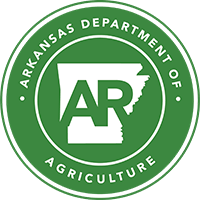Plant Industries
Serving the citizens of Arkansas and the agricultural and business communities by providing information and unbiased enforcement of laws and regulations set by the Arkansas State Plant Board
Agriculture / Plant Industries / Quality Control and Compliance (Feed, Fertilizer, Hemp, Seed) / Hemp Home / License Holders – Forms & Deadlines
License Holders – Forms & Deadlines
All Arkansas Hemp Program Request and Report Forms can be found on this webpage. These forms are for licensed and approved Hemp License holders only.
For AR Hemp Licensee convenience, Arkansas Hemp Program Forms are available in two (2) different formats: (1) Manual ‘Fillable PDF’ Forms & (2) Microsoft Electronic Forms, or MS E-Forms.
Please note that if a licensee chooses to use the Manual ‘Fillable PDF’ Forms, all completed forms must be emailed to industrialhemp@agriculture.arkansas.gov. If Adobe Reader is installed on your computer or mobile device, you can type directly into the hemp program’s fillable form. Free Adobe Reader download: https://get.adobe.com/reader/
The AR Hemp Program encourages the use of the new Microsoft Electronic Forms. No downloads are necessary to complete an E-Form with the AR Hemp Program—simply click the link from your computer or mobile device and answer all prompted questions.
The AR Hemp Program’s e-mail use and Electronic Form use ensures the timely receipt of all time-sensitive program paperwork. Do NOT post-mail hemp program paperwork to the Department without first having a conversation with AR Hemp Program staff.
If you have any questions or concerns regarding a Hemp Program form, feel free to contact the AR Hemp Program at the Department at (501) 219-6375 or email industrialhemp@agriculture.arkansas.gov.
AR HEMP PROGRAM LICENSEE FORMS
MANUAL ‘FILLABLE PDF’ VERSIONS
MUST BE SUBMITTED VIA EMAIL TO HEMP PROGRAM
2024 Destruction Request Form (pdf)
2024 Harvest Request Form (pdf)
2024 New Variety Request Form (pdf)
2024 Field Planting Report Form (pdf)
2024 Greenhouse/Indoor Planting Report Form (pdf)
Site Modification Request Form (pdf)
2024 Processor/Handler Production Report Form (pdf)
ELECTRONIC FORM (E-FORM) VERSIONS
EASY TO USE WITH YOUR MOBILE DEVICE!
2024 Destruction Request Form (MS Forms)
2024 Harvest Request Form (MS Forms)
2024 New Variety Request Form (MS Forms)
2024 Field Planting Report Form (MS Forms)
2024 Greenhouse/Indoor Planting Report Form (MS Forms)
PAYING PROGRAM FEES – PROGRAM INVOICES
All Program fee payments must be post-mailed to the Department WITH the associated Program Invoice provided within the mailing envelope and with the cash, check, or money order.
The Program does not have online payment capabilities, but this option may be available in the future.
The Hemp Program will e-mail issued Program Invoices to approved licensees. All Program Invoices must be paid within 30 days of receipt. Failure to pay an issued Program Invoice in full may result in the Department referring the matter to a debt collection agency.
SUMMARY OF VARIETIES LIST
The Hemp Program’s latest Summary of Varieties List is located at the top of this webpage.
All Hemp Licensees should first review the Summary of Varieties List prior to selecting hemp varieties to grow, paying special attention to the provided THC% data and Department designation of each variety.
If a variety has been designated by the Department as a “Variety of Concern,” you are still permitted to grow that variety, but do so cautiously and responsibly. Make sure to monitor your THC levels throughout the season using a licensed third-party laboratory to ensure compliance with the state and federal THC threshold.
If the variety you are interested in growing has not already been approved by the Program, you must request the new variety by submitting a “New Variety Request Form” to the Program before purchasing or obtaining the variety.
PURCHASING & OBTAINING SEEDS OR TRANSPLANTS
License holders that wish to purchase seeds or transplants (also known as propagules, clones, seedlings, etc.) should first determine whether the hemp variety or strain has been approved for growing with the Program, or if the variety has been determined by the Department to be a Prohibited Variety or Variety of Concern. This is done by referring to the “Summary of Varieties List” located above on this webpage.
Once you have selected a program-approved variety, you are ready to obtain the seed or plant material. Transferring viable hemp seed or hemp transplants have similar transfer requirements.
The following documents/records must always be in possession of the transporter OR included within the packing/shipping container.
- License Holder’s Transfer Documentation: This could be a company or individual’s bill of lading document, transfer manifest document, or similar transfer documentation.
- Copies of ALL entities’ Hemp License Certificates: The company or individual you are purchasing material from MUST be licensed to grow or handle hemp with their state’s department of agriculture, or the USDA. Copies of hemp license certificates must be retained with your operation files. A copy of your hemp license certificate must be made available when prompted by law enforcement or representatives of the Department.
- Copies of Arkansas Seed Dealer/Labeler License OR Nurseryman License/Phytosanitary Certificate: If you are obtaining seed material, a copy of the company or individual’s Arkansas Seed Dealer/Labeler License must be provided with transfer records. If you are obtaining transplants or rooted plant material, a copy of an Arkansas Nurseryman License or a phytosanitary certificate from a state’s department of agriculture must be provided with transfer records.
- Valid Lab Analysis Sheet or Certificates of Analysis: Lab analysis sheets or COAs must be provided with transfer records for every lot of hemp being transferred or sold, detailing the material’s Total THC content.
AR Seed Licensing Information: CLICK HERE
AR Nursery Licensing Information: CLICK HERE
If you have any questions regarding transfers of hemp seed or hemp transplants, please call the Department at (501) 225-1598 or e-mail the Hemp Program at industrialhemp@agriculture.arkansas.gov.
HARVEST SEASON—SAMPLING, TESTING, REMEDIATION & DISPOSAL PROGRAM GUIDELINES
The Department samples and tests 100% of all hemp lots grown in the Program prior to harvest.
After the Department collects pre-harvest or post-harvest compliance samples of hemp or cannabis material, the Department’s Laboratory Services Division conducts laboratory analysis on the representative samples for determination of total THC content. This helps to ensure that all hemp produced in Arkansas’s Hemp Program abides by the federal THC limit established by Congress.
It is IMPERATIVE that License Holders familiarize themselves with the latest “Sampling, Testing, Remediation & Disposal Guidelines” document, located above on this webpage.
This guideline document addresses: 1) procedures for the Department’s sample collection & site GPS coordinate verification, 2) the licensed Grower’s responsibilities prior to harvesting any lot, 3) post-testing actions when given THC results from the Department, 4) the two acceptable methods to remediate a noncompliant lot via post-harvest sampling procedures, and 5) acceptable methods of disposal and procedures for disposal of noncompliant crops.
All Department THC% lab reports will be e-mailed to the licensee as soon as the report is made available by the laboratory. A license holder cannot wait to harvest requested lots before receiving the Department’s lab results; lots must be harvested within 30-days of the Department’s sample collection visit.
NOTE: The Department encourages hemp growers to monitor THC levels once crops begin to mature or flower by using an independent third-party laboratory able to analyze hemp or cannabis material. Third-party lab results do NOT permit a license holder to market a hemp lot; only the Department’s official lab report is able to determine whether a crop can be marketed or not.
FIELD PLOT SIGNAGE—REQUIRED FOR ALL FIELD / OUTDOOR GROWING LOCATION IDs
All licensed outdoor field plots in Arkansas’s Hemp Program MUST have signage posted at each registered Field Location ID.
The Department has created Field Plot Signage templates for licensees to utilize for their licensed hemp plots. The sign templates are available in two sizes and are in “fillable” Adobe PDF format, located above on this webpage.
Make sure the Location ID name on the signage matches the Location ID name listed on page 2+ of your License Certificate!
PESTICIDE USE ON HEMP IN ARKANSAS
All pesticide products in Arkansas must first be registered for use with the Department’s Pesticide Section. Additionally, pursuant to the Federal Insecticide, Fungicide and Rodenticide Act (FIFRA), the U.S. Environmental Protection Agency (EPA) regulates most pesticide products that are sold and distributed in the United States. Since April 2023, the EPA has approved adding hemp to the labeled use sites of 99 pesticide products, but not all of these products may be registered and labeled for use within the State of Arkansas.
For more information about registered pesticide products for hemp from the EPA: CLICK HERE
Some Minimum Risk Pesticides are labeled for hemp or—while not specifically labeled for hemp—can still be applied to hemp. While there are more products available for hemp use now, there are still only a few pesticides specifically labeled for hemp application. Minimum Risk Pesticides (sometimes called 25b pesticides) do not have to be registered with the EPA but are regulated and registered by the Department.
Both state and federal law require that the labels on Minimum Risk Pesticides be followed. Some Minimum Risk Pesticides are labeled broadly enough that hemp can be covered. This can cause confusion about what products can be used and how. As part of the directions for use, these labels will specify the particular crop and sites (field, greenhouse, etc.) to which they can be applied.
It is the license holder’s responsibility to ensure any pesticide products applied to hemp crops are registered for use in Arkansas AND are specifically labeled for industrial hemp application. “The label is the law.”
Hemp Producers/Growers are responsible for determining which pesticides can be legally used and in what manner. The Department encourages growers to work with processors or purchasers on what will be acceptable for use.
Reviewed all Hemp Program webpages and still have a question for the Program?
E-mail your hemp-related question(s) to industrialhemp@agriculture.arkansas.gov

